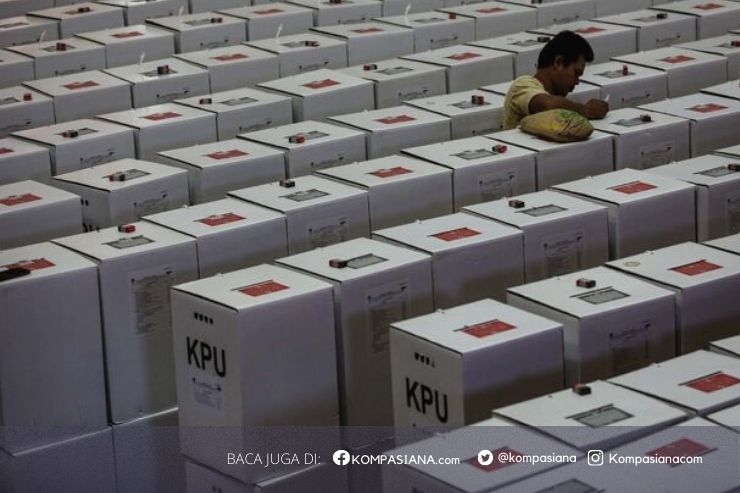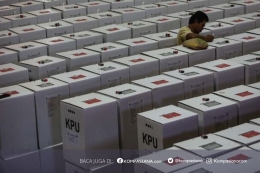ABSTRACT: This paper examines the complexities of social, political, and cultural issues in African and Middle Eastern literature through the works of Fatima Mernissi (Teras Terlarang), Ibrahim Fawal (My Salwa My Palestine), and Carmen bin Laden (Inside the Kingdom). The central issue explored is the intersection of gender, power, and identity within socio-political contexts shaped by historical struggles, patriarchal norms, and cultural expectations. The purpose of this study is to investigate how these literary works portray personal and collective resistance against oppression while reflecting broader societal conflicts. The research adopts a qualitative literary analysis method, focusing on textual interpretation and thematic exploration. Data is collected through close reading of the selected works, supported by secondary sources on feminist, postcolonial, and cultural theories. The analysis reveals recurring themes of identity negotiation, resistance to patriarchal and colonial structures, and the quest for personal freedom within restrictive cultural environments. The study highlights how literature can serve as a platform for addressing sensitive socio-political issues while advocating for change. It concludes that these narratives transcend individual struggles, offering valuable insights into the broader discourse of human rights and justice in the Islamic world. This contributes to a deeper understanding of gender, culture, and political complexity in contemporary literature.
Keywords: Culture, Gender, Identity, Literature, Politics.
ABSTRAK: Artikel ini mengkaji kompleksitas isu sosial, politik, dan budaya dalam sastra Afrika dan Timur Tengah melalui karya Fatima Mernissi (Teras Terlarang), Ibrahim Fawal (My Salwa My Palestine), dan Carmen bin Laden (Inside the Kingdom). Isu utama yang dieksplorasi adalah persimpangan antara gender, kekuasaan, dan identitas dalam konteks sosial-politik yang dibentuk oleh perjuangan sejarah, norma patriarkal, dan ekspektasi budaya. Tujuan dari penelitian ini adalah untuk menganalisis bagaimana karya-karya sastra ini menggambarkan perlawanan pribadi dan kolektif terhadap penindasan sambil mencerminkan konflik sosial yang lebih luas. Penelitian ini menggunakan metode analisis sastra kualitatif dengan pendekatan interpretasi tekstual dan eksplorasi tematik. Data dikumpulkan melalui pembacaan mendalam terhadap karya-karya terpilih dan didukung oleh sumber-sumber sekunder yang membahas teori feminisme, pascakolonialisme, dan budaya. Hasil analisis menunjukkan tema-tema yang berulang seperti negosiasi identitas, perlawanan terhadap struktur patriarki dan kolonial, serta upaya mencari kebebasan pribadi dalam lingkungan budaya yang membatasi. Penelitian ini menyoroti bagaimana sastra dapat menjadi wadah untuk membahas isu sosial-politik yang sensitif sekaligus memperjuangkan perubahan. Kesimpulannya, narasi-narasi ini melampaui perjuangan individu, menawarkan wawasan berharga tentang hak asasi manusia dan keadilan dalam dunia Islam kontemporer.
Kata Kunci: Budaya, Gender, Identitas, Literatur, Politik
INTRODUCTION
The complex intersection of culture, gender, and identity in African and Middle Eastern literature reflects a long history of socio-political struggles, deeply intertwined with colonialism, patriarchy, and shifting cultural norms. This paper explores the thematic concerns of gender, power, and identity in the works of Fatima Mernissi (Teras Terlarang), Ibrahim Fawal (My Salwa My Palestine), and Carmen bin Laden (Inside the Kingdom). The primary issue addressed in this study is how these authors represent the struggles of individuals and societies within cultures shaped by colonialism, patriarchy, and political oppression. In each work, personal narratives of resistance against oppressive systems are set against broader socio-political backdrops that inform the characters' identities and actions.
The problem of study lies in understanding how these authors address complex socio-cultural issues, especially focusing on how gender, culture, and identity intersect in the Islamic world and the broader Middle Eastern and North African context. The literature from these regions often grapples with questions of modernity, colonial influence, and the quest for autonomy within traditionally restrictive societies. By examining these texts, the study aims to uncover the ways in which these narratives reflect struggles for both personal freedom and social justice, while challenging the historical and cultural limitations imposed on individuals---especially women.
The objective of this study is to analyze how gender and power relations are portrayed in the selected works, and how these literary pieces contribute to broader conversations surrounding resistance, identity, and cultural preservation in postcolonial societies. This paper also aims to understand how literature in these contexts becomes a form of political and social resistance, providing a platform for marginalized voices to challenge dominant cultural narratives.
To guide this analysis, feminist theory, particularly postcolonial feminism, serves as the primary theoretical framework. Scholars like Chandra Talpade Mohanty and Gayatri Chakravorty Spivak argue that postcolonial feminist thought critically examines how gender and colonialism intersect, especially in societies where patriarchal structures are reinforced by colonial histories. Additionally, Edward Said's theory of Orientalism will inform the exploration of how the West has historically constructed narratives about the East, often marginalizing indigenous voices in the process. This critical lens allows for a deeper understanding of how Mernissi, Fawal, and bin Laden engage with these external and internal forces shaping their characters' lives.
Moreover, Michel Foucault's ideas about power and resistance offer valuable insight into the ways these authors depict individual struggles against oppressive structures. Foucault's concept of power as not just top-down but embedded in daily practices helps to illuminate the subtle ways in which characters resist societal norms, often in ways that challenge the status quo without overt confrontation. This theoretical approach will be used to analyze the characters' actions, the spaces they inhabit, and the ways in which they navigate their identities in relation to dominant cultural forces.
Ultimately, this paper aims to answer the question: How do the works of Mernissi, Fawal, and bin Laden illustrate the complexities of gender, identity, and power in African and Middle Eastern societies? By using feminist and postcolonial theoretical frameworks, this study will show how these authors' narratives offer nuanced critiques of colonialism, patriarchy, and socio-political constraints, and how they contribute to a broader discourse on human rights, gender equality, and cultural identity in the contemporary Islamic world.








